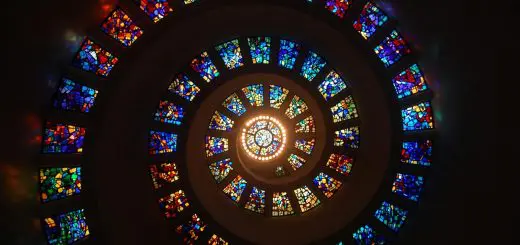Puja Ceremonies: Commemorating Life Events

Looking for more amazing products? Check out our online store and explore our collection here! Happy shopping!
Before diving in, please note: This post is for informational purposes only. If you’d like to know more about how we approach topics, feel free to check out our friendly Disclaimer Page.
Hey there, amazing readers! 
We’re committed to delivering quality posts, and your support (even just sticking around despite the ads) means everything to us. So, bear with us, and thanks for helping us keep the good vibes rolling. Now, on to the fun stuff!
TRANSLATE BUTTON AT THE END OF THE ARTICLE
A Quick Overview: Introduction to Puja Ceremonies
Puja, also known as Pooja, is a Hindu ritualistic worship ceremony that involves offering prayers, flowers, incense, and food to one or more deities.
It is a form of devotional practice that helps individuals connect with the divine, seek blessings, and express gratitude.
Puja ceremonies are an integral part of Hindu culture and are performed on various occasions such as festivals, birthdays, weddings, housewarming, and even funerals.
Each puja is performed following specific rituals and mantras to invoke the blessings of the deity being worshipped.
Significance of Puja in Hindu Culture
Puja holds immense significance in Hindu culture as it is believed to purify the mind, body, and soul of the individual performing it.
It is a way to show devotion and gratitude towards the divine forces and seek their blessings for various aspects of life.
Puja ceremonies are considered a form of spiritual practice that helps individuals connect with the higher power and attain peace and harmony in life.
The rituals and offerings made during puja ceremonies are believed to please the deities and bring prosperity, health, and success to the devotee.
Types of Puja Ceremonies
There are various types of puja ceremonies performed in Hindu culture, each having its own significance and purpose.
Some of the common types of puja ceremonies include:
Daily Puja: This is a daily ritual performed by individuals at home to create a sacred space and seek blessings for the day ahead.
Festival Puja: Special pujas are performed during Hindu festivals such as Diwali, Navratri, and Ganesh Chaturthi to celebrate and honor the deities.
Specific Purpose Puja: These pujas are performed to fulfill a specific wish or desire of the devotee, such as for health, wealth, or success.
Puja Ceremonies for Life Events
Puja ceremonies play a crucial role in commemorating important life events in Hindu culture.
These ceremonies are performed to seek blessings for the well-being and prosperity of individuals and their families.
Some of the common life events for which puja ceremonies are conducted include birth and naming ceremonies, weddings, housewarming, and even funerals.
Birth and Naming Ceremony Puja
The birth and naming ceremony puja, also known as Naamkaran, is performed to welcome the newborn into the family and bless them with a prosperous life ahead.
The puja is usually conducted on the eleventh day after the birth of the child and involves rituals such as offering prayers to the family deity, performing havan (fire ceremony), and seeking blessings from elders.
The baby is given a name during the ceremony, which is chosen based on the child’s horoscope and the auspicious timing of the ceremony.
Wedding Ceremony Puja
The wedding ceremony puja, also known as Vivaha, is one of the most important puja ceremonies in Hindu culture.
It is performed to seek the blessings of the divine for the couple embarking on their new journey together.
The puja involves rituals such as Kanyadaan (giving away the bride), Mangal phera (circling the sacred fire), and Saptapadi (taking seven vows).
The ceremony is conducted in the presence of family and friends, and offerings are made to the deities for a harmonious and prosperous marital life.
Housewarming Ceremony Puja
The housewarming ceremony puja, also known as Griha Pravesh, is performed before moving into a new home to seek the blessings of the deities for prosperity and happiness in the new abode.
The puja involves rituals such as Ganesh puja (worship of Lord Ganesh), Vastu puja (worship of the deity of directions), and havan (fire ceremony).
Offerings are made to the deities to purify the house and ward off any negative energies, ensuring peace and harmony for the residents.
Puja Ceremonies for Prosperity
Puja ceremonies are often performed to seek blessings for prosperity and abundance in various aspects of life.
These ceremonies involve making offerings to the deities and reciting mantras to invoke their blessings for wealth, success, and material well-being.
Some of the common puja ceremonies performed for prosperity include Lakshmi Puja (worship of Goddess Lakshmi), Saraswati Puja (worship of Goddess Saraswati), and Kubera Puja (worship of Lord Kubera, the God of wealth).
Puja Ceremonies for Health and Wellness
Puja ceremonies are also conducted to seek blessings for good health and well-being.
Understand the Powerful Law of Karma and Its Impact – Explore Here!
These ceremonies involve offering prayers to the deities known for their healing powers and reciting mantras for the well-being of the individual.
Some of the common puja ceremonies performed for health and wellness include Ayurveda puja (worship of Ayurveda deities), Dhanvantari puja (worship of Lord Dhanvantari, the God of medicine), and Rudrabhishek puja (worship of Lord Shiva for health and longevity).
Puja Ceremonies for Success and Education
Puja ceremonies are performed to seek blessings for success and education, especially by students and professionals.
These ceremonies involve worshiping the deities associated with knowledge, wisdom, and success and seeking their blessings for achieving goals and aspirations.
Some of the common puja ceremonies performed for success and education include Saraswati Puja (worship of Goddess Saraswati, the Goddess of knowledge), Ganesha Puja (worship of Lord Ganesha, the God of wisdom), and Navagraha Puja (worship of the nine planetary deities for success and prosperity).
Death and Funeral Ceremony Puja
The death and funeral ceremony puja, also known as Antim Sanskar, is performed to honor the deceased and seek peace for their soul in the afterlife.
The puja involves rituals such as bathing the body, chanting prayers, and offering food and flowers to the departed soul.
The ashes are then scattered in a sacred river or buried according to Hindu customs.
The puja is conducted with reverence and respect for the departed soul and is believed to help them attain moksha (liberation).
Conclusion: Importance of Puja in Commemorating Life Events
Puja ceremonies hold immense significance in Hindu culture as they help individuals seek blessings and guidance for important life events.
Whether it is celebrating a birth, a wedding, a housewarming, or even bidding farewell to a loved one, puja ceremonies play a crucial role in bringing peace, harmony, and prosperity to individuals and their families.
By following the rituals and offerings prescribed in the puja ceremonies, devotees can connect with the divine forces and seek their blessings for various aspects of life such as health, wealth, success, and well-being.
Puja ceremonies are a way to express gratitude, seek protection, and invoke the blessings of the deities for a fulfilling and auspicious life journey.

The Enlightenment Journey is a remarkable collection of writings authored by a distinguished group of experts in the fields of spirituality, new age, and esoteric knowledge.
This anthology features a diverse assembly of well-experienced authors who bring their profound insights and credible perspectives to the forefront.
Each contributor possesses a wealth of knowledge and wisdom, making them authorities in their respective domains.
Together, they offer readers a transformative journey into the realms of spiritual growth, self-discovery, and esoteric enlightenment.
The Enlightenment Journey is a testament to the collective expertise of these luminaries, providing readers with a rich tapestry of ideas and information to illuminate their spiritual path.
Our Diverse Expertise
While our primary focus is on spirituality and esotericism, we are equally passionate about exploring a wide range of other topics and niches 

To ensure we provide the most accurate and valuable insights, we collaborate with trusted experts in their respective domains 
Our blog originally focused on spirituality and metaphysics, but we’ve since expanded to cover a wide range of niches. Don’t worry—we continue to publish a lot of articles on spirituality! Frequently visit our blog to explore our diverse content and stay tuned for more insightful reads.
Hey there, amazing reader! 
Check out our store here and take a peek at some of our featured products below! Thanks for being awesome!












